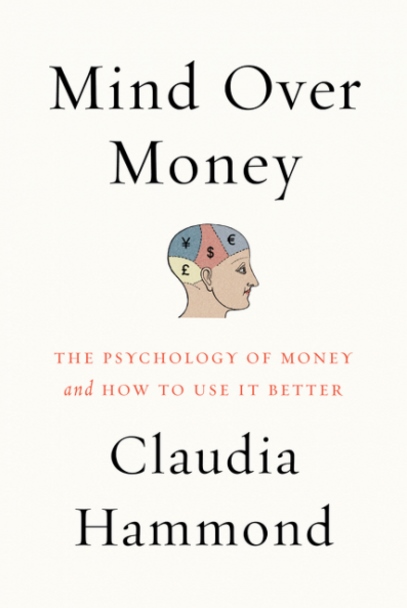When your friends do a favor for you, should you pay them?
When choosing a pain reliever, should you buy a name brand or the generic?
If you are working as a waiter, how can you get a bigger tip?
These questions are examined in Claudia Hammond’s book, Mind Over Money, The psychology of Money and How to Use it Better. When I picked up this book, I thought it would be a self-help book addressing readers’ financial problems. Instead, this book is a fascinating window into humankind’s complex relationship with money.
Hammond examined the results of 263 experiments and research studies in psychology, neuroscience, biology, and behavioral economics to explain why humans react to money and money-related issues the way we do.
The studies Hammond uncovered explain why:
- We should spend money on experiences, not things.
- Praise is a better motivator than money.
- Money wards off the fear of death.
- Being poor can lead people to make poor financial decisions.
- A high price is not necessarily a sign of quality.
- Why enough money is never enough.
And much more.
You will need to read the book to learn what research tells us about these more serious topics, but to answer the lighter ones posed at the beginning of this article, Mind over Money tells us:
- We should not pay our friends when they do favors for us. Introducing money can transform the interaction. The friends start to compare the amount you are paying them to what a professional would earn. Or they will compare what you are paying them to what they earn at their regular jobs. Hammond says, “The upshot is that a task they would have happily done for nothing, as a genuine favour (sic), they do less happily for a small payment.”
- Taking a brand name pain reliever may seem to make your headache disappear faster. But, brand names and cheaper generics contain the same active ingredients. The only real difference is the price. Why do people report their headaches disappear faster when they take the name brand pain reliever? Hammond says “price seems to be working like a placebo effect, somehow convincing us that we are actually experiencing a greater reduction of pain with the more expensive brands.”
- If waiters want larger tips, they should lightly touch their customers on the arm as they present the bill. This was the conclusion of a study by two French psychologists, Nicolas Guéguen and Céline Jacob. Hammond says Guéguen and Jacob’s “research was inspired by studies in the 1980s that had found that if you ask someone to do something, they are more likely to say yes if you touch them on the arm at some point.”
Hammond did sprinkle tips and tricks throughout Mind Over Money and included a four-page final chapter summarizing the take-aways from the research she presented in the book. My favorite is #4: “Don’t go on a wine course. If you learn too much about expensive wines, you’ll start caring about what you’re drinking. If you don’t, cheap wine will carry on tasting good, especially if your friends lie to you about the price.”
Mind Over Money, The psychology of Money and How to Use it Better © 2016 by Claudia Hammond is published by Harper Perennial. List price is $15.99.
This blog is published to provide you with general information only, and is not intended to provide specific or comprehensive advice. Money Care, LLC encourages individuals to seek advice from competent professionals when appropriate.

